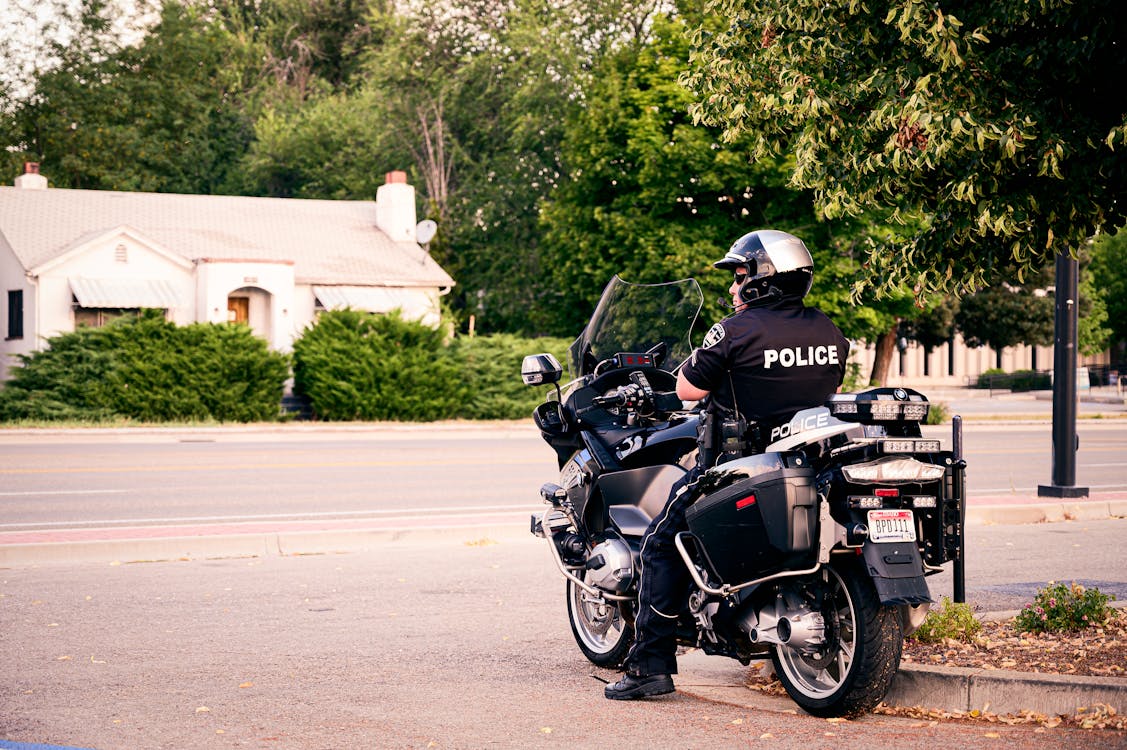Article I, section 12 of the Florida Constitution provides that “The right of the people to be secure … against the unreasonable interception of private communications by any means, shall not be violated. This right shall be construed in conformity with the 4th Amendment to the United States Constitution, as interpreted by the United States Supreme Court.”
The facts of this case are rather simple, and probably occur on a regular basis:
Robert Smith was a passenger in a car heading northbound on I-95 when the car was pulled over by a police officer. The officer decided to pursue the car after he observed the car swerve erratically while the driver was doing “something” to his face. The driver told the officer that the car had swerved while he was splashing water on his face. The officer issued the driver a warning for failure to drive within a single lane and recommended that the driver drink some coffee or pull over and take a nap. Smith was asleep in the front passenger seat during this exchange.
Although the officer informed the driver that he was free to leave, the driver consented to the officer’s request to search the car. For safety purposes, the officer requested the driver and Smith to sit in the back seat of the police car during the search of the car. The officer found cocaine in the glove compartment and arrested Smith and the driver.
While the search was taking place, the officer taped the conversation between Smith and the driver using a tape recorder in the police car. Smith and the driver were not told that they would be recorded. The taped conversation included a discussion concerning whether the officer had found the package in the car.
The question before the court was whether the defendant’s “private communications” were unlawfully monitored.
The Fourth Amendment right to privacy is measured by a two-part test: 1) the person must have a subjective expectation of privacy; and 2) that expectation must be one that society recognizes as reasonable. Katz v. United States, 389 U.S. 347, 360 (1967) (Harlan, J., concurring). Had Smith been placed in the police car for custody purposes, our analysis would be quite simple. A prisoner’s right of privacy fails both prongs of the Katz test. First, a prisoner’s privacy interest is severely limited by the status of being a prisoner and by being in an area of confinement that “shares none of the attributes of privacy of a home, an automobile, an office, or a hotel room.” Lanza v. New York, 370 U.S. 139, 143 (1962). Second, “society would insist that the prisoner’s expectation of privacy always yield to what must be considered the paramount interest in institutional security.” Hudson v. Palmer, 468 U.S. 517, 528 (1984). Thus, “the Fourth Amendment proscription against unreasonable searches does not apply within the confines of the prison cell.” Id. at 526, 104 S.Ct. at 3200. Courts have also determined that a person in custody in the back of a police car has no right of privacy because that person is essentially a prisoner. State v. McAdams, 559 So.2d 601, 602 (Fla. 5th DCA 1990); Brown v. State, 349 So.2d 1196, 1197 (Fla. 4th DCA 1977), cert. denied, 434 U.S. 1078 (1978).
However, the instant case requires a different analysis as Smith was neither under arrest nor detained pursuant to articulable suspicion. The Eleventh Circuit (U.S.) Court of Appeals has held that there is no reasonable expectation of privacy in a police car, regardless of the status of the person engaging in the conversation. United States v. McKinnon, 985 F.2d 525, 528 (11th Cir.), cert. denied, 510 U.S. 843 (1993). In McKinnon, the defendant was tape recorded under the same circumstances as the instant case, except that the recording took place both before and after arrest. The federal district court denied the defendant’s motion to suppress the pre-arrest portion of his recorded conversation. On appeal, the circuit court affirmed that denial, finding that the defendant “did not have a reasonable or justifiable expectation of privacy for conversations he held while seated in the back seat area of a police car.” at 528. In response to the defendant’s argument that a person has broader rights pre-arrest than post-arrest, the circuit court found that there was “no persuasive distinction between pre-arrest and post-arrest situations in this case.” Id. The court also cited with approval a number of cases where the locale of the conversations, rather than the status of the person doing the conversing, was the controlling factor. See also United States v. Harrelson, 754 F.2d 1153, 1169 (5th Cir.), cert. denied, 474 U.S. 908 (1985); United States v. Sallee, (N.D.Ill. 1991) (finding that there is no reasonable expectation of privacy for conversations taking place while sitting in the back seat of a police car); State v. Hussey, 469 So.2d 346, 351 (La.Ct.App.), cert. denied, 475 So.2d 777 (La.1985); (finding that “guests” of arrestee had no reasonable expectation of privacy while conversing in back seat of police car); See also People v. Maryland, 135 Mich.App. 297, 355 N.W.2d 378, 384 (1984).
We agree with the Eleventh Circuit Court’s reasoning and hold that a person does not have a reasonable expectation of privacy in a police car and that any statements intercepted therein may be admissible as evidence. This is consistent with the conclusions reached by other jurisdictions. State v. Smith, 641 So.2d 849 (Fla. 1994).
In a later case a defendant made incriminatory statements, to a friend, in the police interview room:
After arresting the defendant, law enforcement placed him in an interview room. The defendant was recorded the entire time he occupied that room. After being advised of his Miranda rights, the defendant denied that a fight had occurred in the club and denied having the gun in his car. The defendant then invoked his right to speak to an attorney.
The detective retrieved the defendant’s cell phone for him and left the room. The detective admitted that the purpose of giving the defendant his cell phone was to get an incriminating statement from him. While the detective did not monitor what transpired in the interview room, he subsequently reviewed the DVD of the recording. During a phone conversation with one of the women, who was in the interview room next door, the defendant stated: “Yeah. I told them the same thing. Don’t know what the f— happened. I have told them I don’t know what the f— happened.” During another conversation, the defendant said that he “f—ed up” and, “Yeah, man, I try to leave the scene.”
The defendant moved to suppress the statements made during the cell phone conversations. The State argued that the statements were not the product of an interrogation.
The issue before the court was that:
The defendant argues that law enforcement violated his constitutional rights by recording him in the interview room. The State responds that no error occurred because the defendant did not have a reasonable expectation of privacy and his statements were not made in response to police interrogation. On this issue, we agree with the State. A citizen’s right to privacy under the Fourth Amendment of the Constitution of the United States is determined by a two prong test: 1) whether the citizen had a subjective expectation of privacy; and 2) whether that expectation was one that society recognizes as reasonable. (citing to Katz v. United States, (Harlan, J., concurring)). Under this test, a prisoner does not have a right to privacy because areas of confinement do not share the same attributes as a private car, home, office, or hotel room.
Surreptitiously made recordings of voluntary jailhouse conversations between inmates are admissible, “at least in the absence of any factor diminishing the trustworthiness of the conversation such as coercion or trick.” When law enforcement attempted an interview with the defendant, he invoked his right to counsel, and the interview was terminated. The defendant did not ask for privacy, and there was no suggestion that he had any. The trial court did not err when it denied the defendant’s motion to suppress. We therefore affirm on this issue.
Williams v. State, 982 So.2d 1190 (Fla.App. 4 Dist.,2008).
When examining any area of expectation of privacy, whether physical searches or electronic monitoring, there are two main issues to be examined:
Subjective Intent of the Person:
One must show that he expects some privacy, such as locking a box, or covering up his car with a cloth. Things left in plain view or allowing to be examined (by consent) do not show an expectation of privacy. Leaving your home to use a payphone in the street also shows the world your intent not to be monitored.
Acceptance by Society:
The second prong of the test is that society must recognize that expectation of privacy as a reasonable one. When we enter the airport terminal and go through the metal detector, society wants everyone to be searched, regardless of the intent of the particular individual, or when people are in security situations, as prisons, jails or police cars, society wants the authorities to ensure there will be no escape or dangerous activity planned or carried out. The intent of the person in that secure area becomes immaterial.
This test comes from Katz v. U.S., the bookie who used a pay phone as he feared the FBI had tapped his home phone. As phones were unknown at the time of the adoption of the Fourth Amendment, in 1791, the court found that the Amendment “protects people, not places.”











